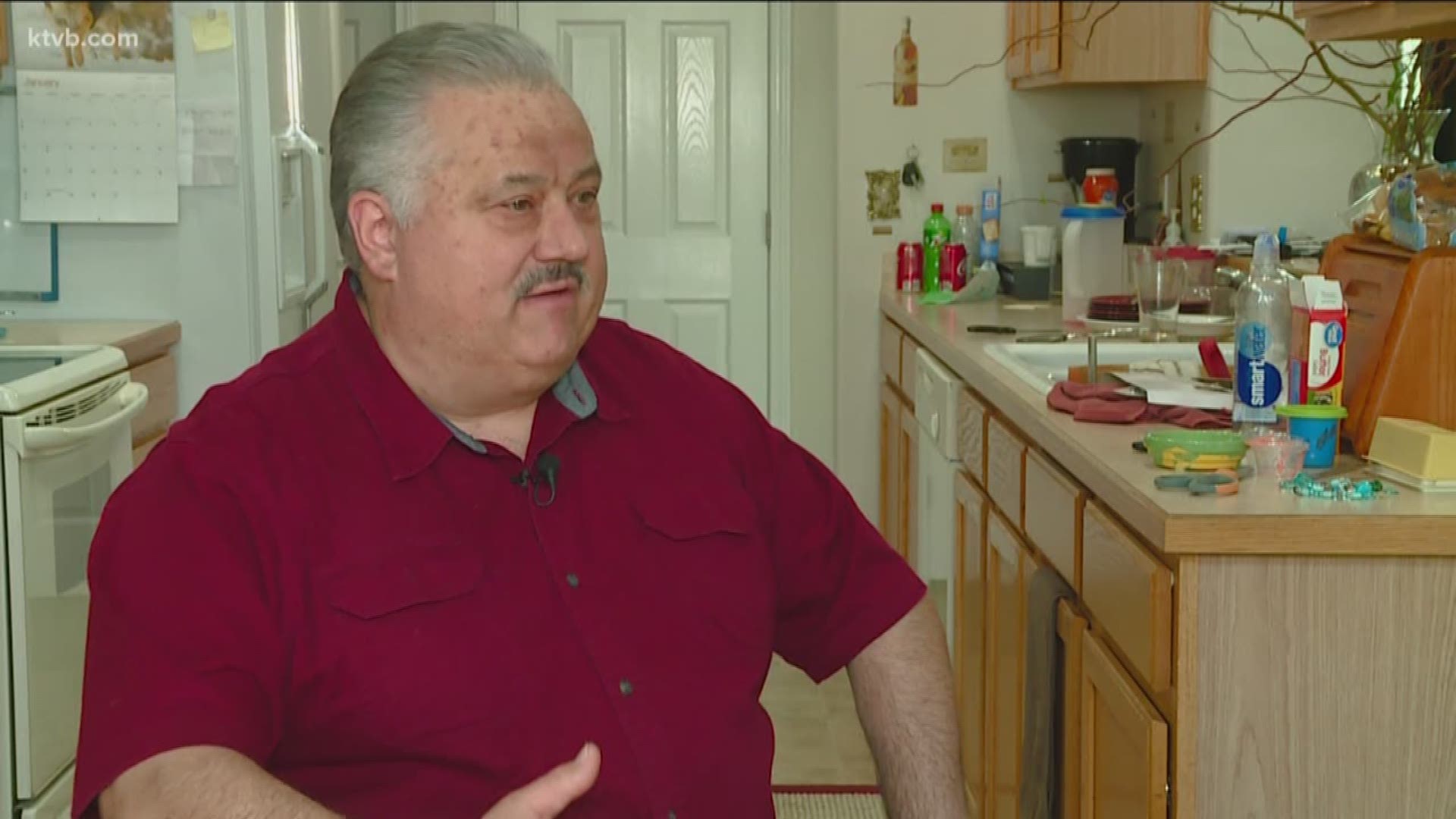As the partial government shutdown stretches into day 12, some 800,000 federal employees are living another day without the guarantee of their next paycheck.
A Meridian man has spent nearly two decades working for the Forest Service at the National Interagency Fire Center (NIFC) in Boise. But for the last 12 days, he's one of the roughly 380,000 Americans on furlough.
Chris Kirk is taking the situation well seeing as he's dealt with government shutdowns a few times while working for the Forest Service. He is temporarily laid off, so when payday comes around on January 11, he won't see any money.
For more than a week and a half, Kirk has been scouring the internet and social media for jobs, occasionally tidying up around the house and spending time with his grandkids.
"Just getting on the computer, on the internet looking for job opportunities, looking for online applications to fill out and watching the news,” Kirk said.
Meanwhile, the stress of the situation hangs over his head; he says he’s in a non-pay status and is technically unemployed, therefore not attached to his job.
“It is very stressful because it could be a couple of days, it could be a few weeks,” he added.
As the shutdown lingered, Kirk and his coworkers made preparations to ensure tasks were accomplished. They needed to leave the workplace in order, so that there is a smooth transition when the shutdown ends and work starts back up.
“When this kind of situation occurs it’s not a situation that’s isolated to the DC area, it’s not isolated to high level politicians in Washington," Kirk said. "But when the federal government shuts down it's every level of the federal government. It's all employees that make day-to-day operations work."
Kirk is going to be behind the curve, playing catch-up when he gets back to NIFC, as work piles up on his desk. Until then, he is faced with the stress of figuring out how to make ends meet.
“Your income is interrupted, you have to find a replacement income and in the interim work with your obligations to make arrangements about those," he said. "But you certainly have to find some way to continue making a living and continue paying your debts."
It's a struggle searching for such temporary employment that he'll have to drop immediately when called back to work. The time of year is posing problems as well.
“The problem with finding a job is finding something that is inherently temporary because the moment the shutdown ends we're summoned back to work and required to report back to work," Kirk added. "So that gives us a scenario where we can't really make any long-term commitments with anybody."
Congress may approve legislation to back pay employees, as they have in the past. However, that money wouldn't come until after the shutdown is lifted and employees know it's not guaranteed. When and if that back-pay comes, employees are still behind the curve financially.
Kirk says he's eligible for unemployment benefits, but it could be weeks by the time he applies and the bureaucratic wheels get spinning, and the shutdown could be over by that point.
“This is one of those times it does have a real impact and it's an impact that's going to affect my landlord, the rest of my family and other extended members of my family as I try to find a solution to this,” he said.
Despite the uncertainty, he is staying optimistic since he's dealt with shutdowns before.
“It’s certainly a situation you don’t look forward to, certainly a situation you don't want to have to plan for - and there's very little you can do to plan ahead for it," Kirk said. "When it does happen you just have to make the best for it and try to maintain a positive attitude. It's not the end of the world."
He says there are some federal employees still working at NIFC in the event something happens and if an emergency happens they won't jeopardize public safety.

